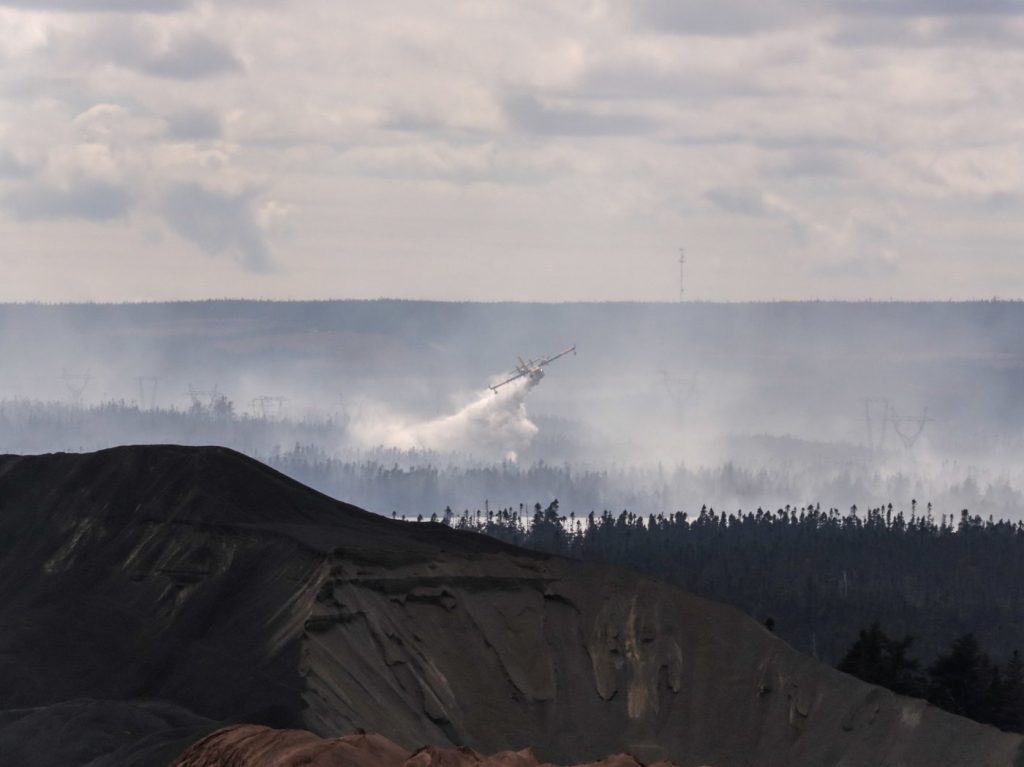ST. JOHN'S — In September, approximately 60 students in eastern Newfoundland will embark on their academic journey in a new environment due to a devastating wildfire that ravaged their elementary school, Cabot Academy, located along the northwestern coast of Conception Bay.
The destruction of Cabot Academy, which served students from kindergarten to Grade 6, has raised significant concerns about the emotional and psychological impact on the children and their families. Dale Lambe, president of the union representing teachers in the province, emphasized the importance of recognizing the trauma experienced by these students and their families. He noted, "There’s going to be a lot of trauma. We’re going to have to be very cognizant of that trauma." Lambe is committed to ensuring that educators and students receive the necessary support during this challenging transition.
This year’s wildfires in Newfoundland and Labrador have wreaked havoc, destroying homes, cabins, and other structures, which prompted the evacuation of thousands of residents. The largest wildfire began over two weeks ago near Kingston, N.L., approximately 125 kilometers northwest of St. John's by highway. As of the latest reports, the fire has covered an area of 107 square kilometers and led to the destruction of 203 structures across five towns, including houses, a post office, and the now-defunct Cabot Academy in Western Bay, which is home to around 395 people.
As news of the school's destruction spread, concerns grew among families in the area who were anxiously awaiting updates on their homes. Lambe expressed the need for all affected families, students, and teachers to acknowledge their feelings of anxiety and uncertainty during this extraordinary situation, reassuring them they are not alone in their struggles. "But they also need to know that they’re not alone," Lambe stated, emphasizing the collective strength of the community as they begin the rebuilding process.
Jolene O’Connell, a resident of Paradise, N.L., shared her emotional turmoil after witnessing smoke rising from a wildfire while driving home to her three daughters, aged 10 and 13. "Just disbelief, you really detach yourself from it, particularly when you’re thinking about getting home to your children who are probably afraid," she remarked. O’Connell and her family were forced to evacuate for three days, temporarily staying with friends alongside another displaced family.
During the crisis, O’Connell remained focused on providing support to her daughters, helping them manage their fears by offering practical information. She guided them with maps to visualize the fire's location relative to their home and ensured they accessed reliable sources of information, avoiding the spread of online rumors. "It’s so important to remain calm but be realistic with your children," she advised, underscoring the critical need for accurate communication amidst chaos.
Lambe highlighted the integral role schools play in rural communities like Western Bay, making the loss of Cabot Academy particularly devastating. However, the transition to new schools presents an opportunity for the students to integrate into strong community networks, which will be instrumental in ensuring their safety and well-being during this difficult time. He expressed optimism regarding the warmth and compassion of the school communities that will welcome Cabot Academy students, asserting that such support is essential for the children's emotional recovery.
As communities across Newfoundland and Labrador begin to recover from the impacts of the wildfires, the collaborative efforts between parents, educators, and local support systems will play a crucial role in helping affected families navigate this profound challenge.










